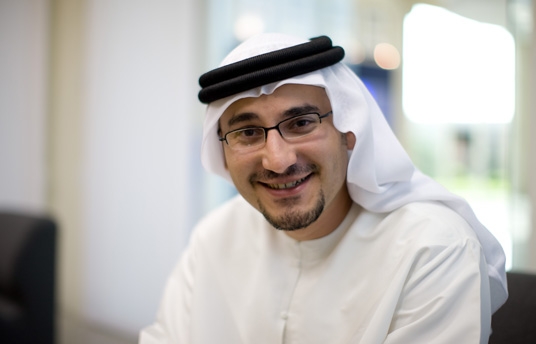أهل السينما: سامر المرزوقي
16 أبريل 2013

سامر المرزوقي، مدير تسويق الأفلام في مهرجان دبي السينمائي الدولي.
ما الجديد والمثير في السوق الخليجي في مهرجان الخليج السينمائي؟
بدأنا هذا العام مبادرة جديدة تركز على دعم المواهب الخليجية وصانعي الأفلام على أمل تقديم المساعدة لإنتاج أفلام قوية. السوق الخليجي هذا العام يتمتع بدعم ثلاثة ركائز: الأولى هي “إنجاز” لدعم الإنتاج لعشرة أفلام خليجية كل عام حيث تقدم لكل مشروع 50 ألف دولار. يركز هذا التمويل على صانعي الأفلام الخليجيين وفي العراق واليمن. لقد اطلقنا هذه المبادرة منذ عام تقريباً وكنا قادرين على دعم مشاريع عديدة واحد منها يشارك في المسابقة الرسمية في مهرجان الخليج السينمائي.
الركيزة الثانية هي سوق السيناريو الخليجي للأفلام القصيرة. لطالما اشتكى صانعو الأفلام في الخليج من النقص الكبير في السيناريوهات الجيدة أو كتاب السيناريو، لذلك قررنا المساعدة في ردم تلك الفجوة بين الكتاب وصانعي الأفلام. واخترنا هذا العام 12 سيناريو من الدول الخليجية، وتمت دعوة الكتاب إلى المهرجان وحضور ورش عمل مع المرشدين الذين يعملون على تطوير السيناريوهات وتدريب الكتاب وتزويدهم بالمهارات اللازمة. من بين هؤلاء المرشدين يسري نصر الله من مصر ومحمد حسن احمد صانع الأفلام الإماراتي المعروف. وفي الواقع يحقق البرنامج هدفه عندما يقدم الكتاب القصص لصناعي الأفلام والسينمائيين الذين يحضرون المهرجان.
الركيزة الثالثة هي ورش العمل، والجلسات النقاشية والسهرات الليلية. المواضيع التي تطرح هذا العام تتناول قضايا غالباً ما يتم التغاضي عنها في الخليج، منها توزيع الأفلام القصيرة، السينما التجريبية وبالتاكيد التمويل. ويضم المهرجان ندوة عن كيفية إيجاد مصادر التمويل للأفلام القصيرة في الخليج. يتم مصاحبة الجلسات مع جلسات التعارف لضمان إتاحة الفرصة لجميع الحضور للتفاعل والتواصل مع المتحدثين والإستفادة بالقدر الكافي من المهرجان.
هل هناك مشاريع معينة تذكرها من عام 2012 او لعام 2013؟
لدينا مشروع واحد نفتخر فيه جداً هو “قطن” للمخرج لؤي فاضل. وهو مشروع لسوق الخليج السينمائي تم اختياره ودعمه والآن يشارك في المسابقة الرسمية في المهرجان.
هل لديك أي مبادرات أخرى تدور على هامش المهرجان؟
هناك شراكتنا مع روبرت بوش ستيفتنغ لرعاية الإنتاجات المشتركة بين المانيا واوروبا الشرقية والشرق الأوسط. يحضر سبعة منتجين من روبرت بوش ستيفتنغ المهرجان للبحث عن مرشحين مثاليين للإنتاجات المشتركة. هناك مبادرة فريدة اخرى هي خدمة الإستشارة مع خبراء الصناعة وطرح الأسئلة المتعلقة بمشاريعهم. هذه الإجتماعات مهمة للغاية لان مساعدتهم تعزز ثقافة صناعة الأفلام في المنطقة.
بالرغم من أن أحد أعمالك هو دعم صانعي الأفلام الخليجيين، لديكم أيضاً مسابقة أفلام دولية. هل تعتقد ان تفويضكم يطال المستوى العالمي أيضاَ؟
يركز المهرجان بشكل خاص على الخليج، حيث 3 من أصل 4 مسابقات مختصة بصانعي الأفلام من المنطقة. المسابقة الرابعة دولية، وهي إضافة جديدة وعرض فريد للأفلام يمكّن صانعي الأفلام الخليجيين من الإستفادة منها. صناعة السينما في الخليج جديدة جداً وتحتاج للدعم لتصل لجودة الصناعات القوية، وبالتالي فإن عرض أفلام عالية الجودة تعزز الحركة السينمائية في المنطقة. فعرض الأفلام الدولية هنا يجذب صانعي الأفلام من مختلف أنحاء العالم إلى مهرجاننا، وهذا الأمر بالتالي سيعزز مهارات السينمائيين. من الرائع حقاً إقامة مثل هذا المهرجان الذي صمم ليبقى صغيراً ونما الآن ليصبح دولياً.
كيف ترى تطور صانعي الأفلام الخليجيين الآن مع وجود العديد من المنصات في الإمارات العربية المتحدة وقطر وفي مختلف انحاء المنطقة؟ هل ترى أن هناك دعماً كافياً؟
مع وجود عدد أكبر من المنصات ستنمو بالتأكيد ثقافة الأفلام في الشرق الأوسط.ربما تكون بعض الأماكن والقنوات متشابهة، والتي يمكن أن تسبب صدامات، لكن هذا الامر يمكن أن يحل مع الوقت. لكن إذا سألتني إذا ما كان هناك دعماً كافياً لصانعي الأفلام الخليجيين، فأقول: يمكننا الفيام بالمزيد في الخليج. هناك طلب رئيسي والجمهور متعطش للأفلام. لدينا قصص كثيرة يمكن أن تروى كما في باقي أنحاء العالم، إنها مسألة استخدام الأدوات الصحيحة والتدريب المناسب من قبل صانعي الأفلام في منطقتنا.